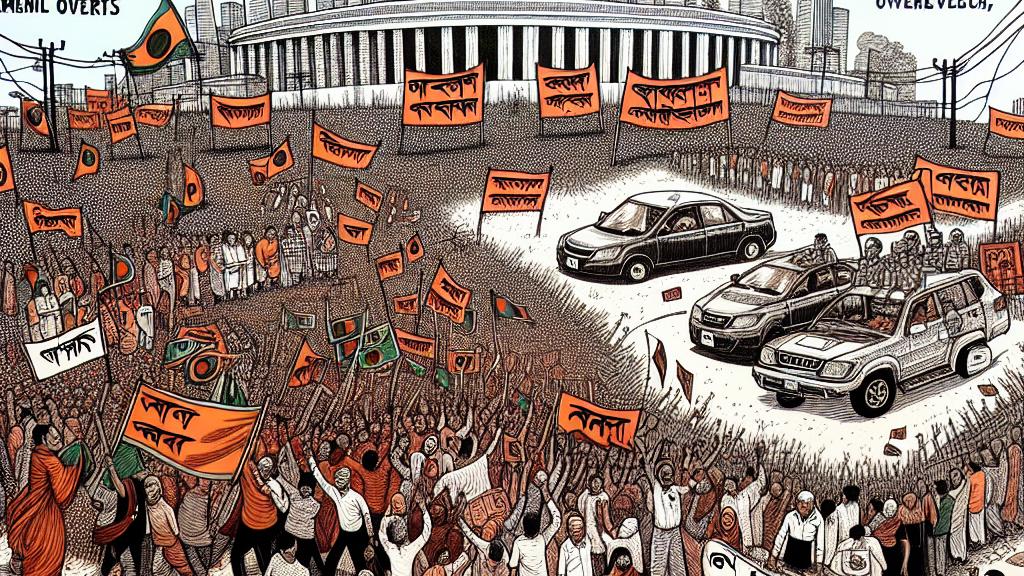Jamaat-e-Islami Strikes Back: The Comeback of Bangladesh's Controversial Islamists!
Overview
- The resignation of Prime Minister Sheikh Hasina has created a power vacuum for the resurgence of Jamaat-e-Islami.
- Jamaat-e-Islami's history is fraught with accusations of war crimes during the 1971 independence struggle.
- The ongoing violent protests highlight deep-seated political, economic, and social issues within Bangladesh, raising concerns about the country's democratic future.

The Political Landscape Transformed
In August 2024, Bangladesh witnessed a turning point when longtime Prime Minister Sheikh Hasina stepped down amid escalating protests demanding her resignation. This shift in leadership has disrupted the status quo, particularly as citizens express widespread dissatisfaction with economic hardships, rampant corruption, and government overreach. What began as protests against a controversial quota system for government jobs quickly escalated into a broader civic outcry against the Hasina administration. The vacuum left by her exit presents a critical opportunity for Jamaat-e-Islami Bangladesh (JeI) to reassert its influence on the nation's political stage, potentially altering the course of democracy in Bangladesh.
Jamaat-e-Islami's Complicated Legacy
Jamaat-e-Islami, established in 1941, has a complicated and often contentious history in Bangladesh's sociopolitical fabric. Notorious for its collaboration with the Pakistani military during the 1971 liberation war, the party has been woven into accusations of committing war crimes, leading to a legacy that still haunts it today. The hanging of former leader Motiur Rahman Nizami for his alleged war crimes epitomizes the struggles intertwined with its identity. Over the decades, while the party sought to reposition itself as a supporter of Islamist principles within a democratic framework, its past actions continue to fuel controversy and skepticism among many Bangladeshis, warranting caution as it maneuvers through the current political turbulence.
Unrest and Implications for the Future
The recent surge in protests, with reports of over 280 fatalities, underscores the volatile nature of the current political climate in Bangladesh. As demonstrators clash with law enforcement, demanding accountability and systemic changes, Jamaat-e-Islami has strategically positioned itself to ride the wave of dissatisfaction. While the military temporarily assumes control to curb the unrest, there’s widespread concern over the potential emergence of authoritarian governances that undermine the democratic process. The intersection of economic distress, political turmoil, and the possibility of Jamaat-e-Islami reclaiming political power creates a precarious situation for Bangladesh. The resulting socio-political dynamics will be crucial in determining whether the country can navigate toward a more stable, inclusive future or devolve further into chaos and division.

Loading...